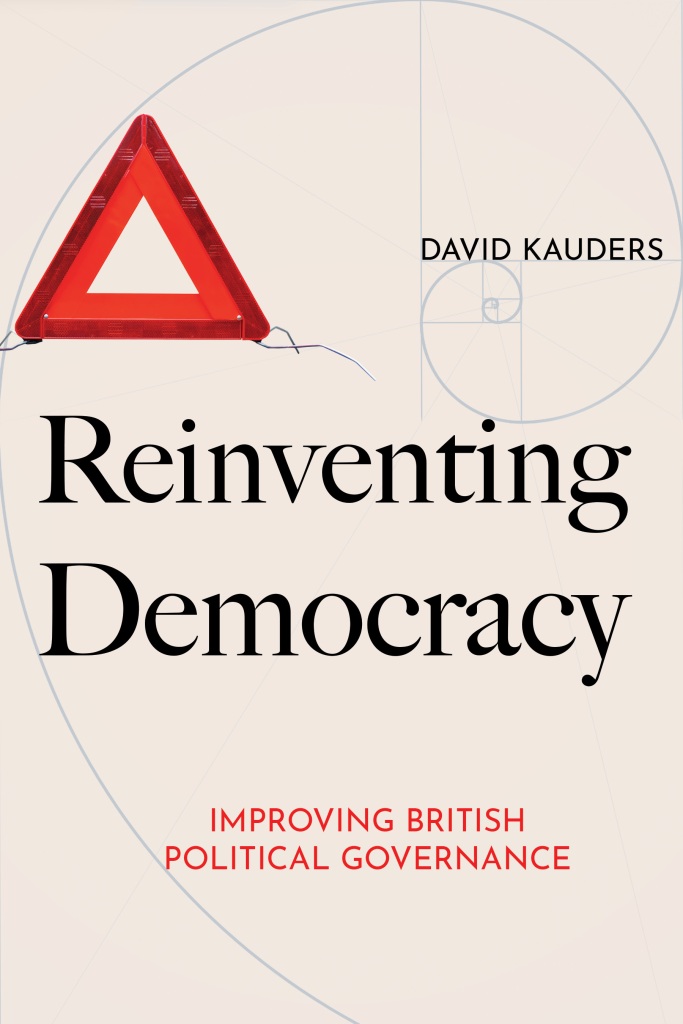
Author Archives: R Cawkwell
Blog tour calendar: Wild Treasures, by Hannah Stitfall
Palamedes PR Interview
Book bloggers are no longer considered ‘fringe media’ but important vehicles to promote new titles, authors and publishers. Unlike mainstream news and feature outlets, which reach a wide but less targeted audience, blogs like EVERYTHING IS BETTER WITH DRAGONS are the go-to destination of choice for engaged consumers who return time and time again for expert reviews and advice.

According to Palamedes PR, the UK’s market-leading book marketing agency, bloggers can be instrumental in shaping the overall success of a new release and are an indispensable force in the public relations industry.
Here, we speak to one of its publicists, Anthony Harvison, to find out why book blogs are reshaping the literary marketing and sales landscape, and how they are an increasingly important advocate for underrepresented voices and genres.

Q: How has the landscape of book marketing evolved with the rise of book blogging, and what role does it play in promoting books?
Book blogging has become a powerful force in book marketing, offering a dynamic platform for readers to share their thoughts and recommendations. It plays a crucial role in creating buzz around books, reaching niche audiences, and influencing purchasing decisions.
Q: In what ways do book bloggers contribute to building a book’s online presence and visibility?
Book bloggers contribute significantly to a book’s online presence by writing reviews, hosting blog tours, and participating in social media discussions. Their authentic and personal recommendations can enhance a book’s visibility and attract a diverse readership.
Q: How do book publicists identify and collaborate with book bloggers to promote specific titles?
Book publicists often research and reach out to book bloggers whose content aligns with the target audience and genre of a particular book. Collaboration may involve sending review copies, organizing blog tours, or facilitating author interviews to generate interest among the blogger’s followers.
Q: Can you share examples of successful book marketing campaigns that heavily leveraged book blogging?
Successful campaigns often involve strategic partnerships with influential book bloggers. For instance, organizing blog tours with well-established bloggers, hosting giveaways, or encouraging book discussions on popular platforms can generate substantial online buzz and drive book sales.
Q: How do book bloggers contribute to the diversity and inclusivity of book promotion, particularly in highlighting underrepresented voices or genres?
Book bloggers have a unique ability to champion diverse voices and genres that might be overlooked in mainstream media. They can bring attention to underrepresented authors and stories, fostering a more inclusive literary landscape and broadening the range of books available to readers.
Q: With the prevalence of social media, how do book bloggers use platforms like Instagram, Twitter, or YouTube to enhance their book reviews and recommendations?
Many book bloggers utilize social media platforms to share visually appealing book recommendations, snippets of reviews, and engage in real-time conversations with their followers. Platforms like Instagram and YouTube, in particular, provide a multimedia approach to book promotion, enhancing the overall impact of their reviews.
Q: How can book publicists and authors effectively engage with book bloggers to ensure a mutually beneficial collaboration?
Building genuine relationships is key. Publicists and authors can engage with book bloggers by offering personalized pitches, providing relevant content, respecting their schedules, and acknowledging their contributions. It’s essential to approach collaborations as a partnership that benefits both parties and their audiences.
Q: Looking forward, do you see any emerging trends or changes in the relationship between book blogging and book marketing?
As technology evolves, immersive experiences like virtual book clubs, interactive content, and multimedia reviews may gain prominence in book blogging. The relationship between book bloggers and marketing may deepen as influencers continue to shape literary conversations and bridge the gap between authors, publishers, and readers.
For more information about Palamedes PR and its book marketing services, go to www.palamedes.co.uk or call 0208 1036883

Review: What Everyone Knows About Britain, by Michael Peel

2024
Price £20.00
EAN\ISBN-13 9781800961760
Description
How do you see Britain?
That might depend on your point of view, and as long time British foreign correspondent, Michael Peel has come to understand, it can look very different from outside. It’s tempting to think of the UK as a fundamentally stable and successful nation. But events of the past few years, from Brexit to exposés of imperial history, have begun to spark fierce public debates about whether that is true. Is Britain, just a marginal northern European island nation, marked by injustices, corruption and with a bloody history of
slavery, repression and looting?
And yet UK politics, media, and public opinion live constantly in the shadow of old myths, Second World War era nostalgia, and a belief in supposedly core British values of tolerance, decency and fair play. British politicians regularly exploit a damaging complacency that holds that everything will turn out okay, because, in Britain, it always does.
In WHAT EVERYONE KNOWS ABOUT BRITAIN, Michael Peel digs into the national consciousness with the perspective of distance to pull apart the ways in which we British have become unmoored from crucial truths about ourselves. He shows us that from many perspectives we are no different from other countries whose own national delusions have seen them succumb to abuses of power, increased poverty and divisive conflict.
The battle over Britain’s narrative is the struggle for its future and its place in the world.
So, how do we escape the trick mirror – and see ourselves as we really are?
Continue reading “Review: What Everyone Knows About Britain, by Michael Peel”Blog Tour Calendar: What Everyone Knows About Britain, by Michael Peel
Reblogged post that I agree with
Review: Reinventing Democracy, by David Kauders

Ninety per cent of electors want political reform. But how to escape the mess? Britain should adopt a federal structure with a written constitution and an elected apolitical People’s Council replacing autocratic and ineffective bodies.
Reinventing Democracy grew out of a series of private meetings involving the author, a respected investment manager, notably one that exposed the hidden costs of the Private Finance Initiative in 2002, an examination of federalism in 2015, and an investigation into Brexit paralysis in 2017.
Growing concern about the relative economic deterioration of the United Kingdom led David to the realisation that the system of political governance is probably an unrecognised cause of British decline. Events over the last few years have provided a fertile supply of examples. All that was needed was some original thought, but nobody seemed to be facing facts. Hence the book.
At the centre of these ideas lie four major concepts:
- The People’s Council to replace the Privy Council, House of Lords, and some scrutiny functions of the present House of Commons.
- A federal structure, with sovereignty defined as sovereignty of the people of each nation instead of the Crown in parliament.
- Representation in United Kingdom-wide bodies to be determined according to the Fibonacci series, so that England can be outvoted by Scotland, Wales and Northern Ireland combined, thereby preventing England treating the other nations as colonies.
- The book includes a draft written constitution, with the aim of putting citizens in control of government.
There is much more waiting for you to discover.
Blog tour calendar: Palamedes PR
TBR/TBL pile review: Alien Clay, by Adrian Tchaikovsky
Synopsis
They travelled into the unknown and left themselves behind . . .
On the distant world of Kiln lie the ruins of an alien civilization. It’s the greatest discovery in humanity’s spacefaring history – yet who were its builders and where did they go?
Professor Arton Daghdev had always wanted to study alien life up close. Then his wishes become a reality in the worst way. His political activism sees him exiled from Earth to Kiln’s extrasolar labour camp. There, he’s condemned to work under an alien sky until he dies.
Kiln boasts a ravenous, chaotic ecosystem like nothing seen on Earth. The monstrous alien life interacts in surprising, sometimes shocking ways with the human body, so Arton will risk death on a daily basis. However, the camp’s oppressive regime might just kill him first. If Arton can somehow escape both fates, the world of Kiln holds a wondrous, terrible secret. It will redefine life and intelligence as he knows it, and might just set him free . . .
My Review
I ordered a hardback copy of this book from The Broken Binding and the audiobook from Audible. I started reading this book earlier in the week, after I finished reading Lords of Uncreation and decided I need some more SF. I should have been reading one of my blog tour books, but I’ll finish that tomorrow. I happened to need something to listen to on Wednesday because I wanted to go out and swim after I had to spend Tuesday at the hospital. I read the first 23 chapters of the hardback book on Monday, on Wednesday I picked up from the right point in the audiobook and listened to all but the last 23 minutes of it while I was out all afternoon. I listened to the rest when I went out today. So yeah, I binged the book slightly.
I’ve read eight of Tchaikovsky’s books now, six are from space opera trilogies, while two, including Alien Clay, are stand alone novels. I enjoy both types. There’s always strong worldbuilding and interesting characters. Alien Clay is no different, the world of Kiln is very deeply imagined and the main character, Arton Daghdev, is an acerbic bitch; he made me laugh so much.
Kiln puzzles the scientists bound by Mandate orthodoxy; Arton Daghdev and his fellow condemned are heterodox, rebels against the Mandate, or common criminals who happened to end up on Kiln as part of their punishment. Daghdev was an academic, skating the edge of orthodoxy, a xenobiologist, and a member of several revolutionary sub-committees, until purges put him on a ship to Kiln, a one-way trip.
On Kiln, he is welcomed by the very orthodox commandant who hopes Daghdev can be turned to orthodoxy. He’s put on the Science Support team, along with a friend from home, Ilmus, a former colleague and ‘disciple’ who was picked up by the police, tortured and exiled to Kiln a year before Daghdev. The team work with ‘the Science’ – professionals, paid to work on Kiln, to prove the Mandate’s anthropocentric orthodoxy.
Life on Kiln is rampant, even in an apparently cooler, drier period, and it evolves in a vary different way to Earth life. Each creature is a symbiotic community, carrying multiple species in many combinations. But ruins suggest there was once a sentient species on the planet, and it’s the job of the Science (and the prisoners sent to die there) to discover as much as possible and confirm the Mandate orthodox belief that the purpose of the universe is humanity.
After a failed coup, Daghdev, Ilmus and the former head of Science (who had a one night stand with Daghdev and is therefore assumed to have known about the rebellion), among others, are punished by being sent to Excursions. Where they are not popular, because changing the teams means changing the decontamination schedules, risking people’s lives.
Excursions are not a popular assignment, because they are the only people who go outside of the domed camp. Outside the camp, Kiln life tries to take hold immediately. Luckily, life is so different on Earth, that it takes Kiln life a while to work it out and a good decontamination can deal with that. It’s all well and good, until Daghdev’s team, led by an old shop steward, and longest living Kiln survivor, Keev, lose their transport to a creature called ‘the Elephant’s Dad’ and are forced to walk back to the camp.
Out in the Kiln environment, pretty much unprotected from the symbiotic life forms, they change. By the time they return, they are themselves and yet, more than that. Kiln has found the keys to unlock Earth biology. The planet has found a new mind that it can use. Slowly, the survivors spread their change across the rest of the prisoners, until they can work in unity while being still individuals. It’s a new revolution.
Tchaikovsky’s work has always had a political edge, if you know where to look, and he usually has a point to make. The point made in Alien Clay might piss off people who read sci fi because they like it when things get blown up in space and evil empires are replaced by less evil empires. Replacing one with t’other doesn’t work; you need a complete change of system. Replacing the Mandate with a revolution wouldn’t work – revolutions tend to get taken over by people who want power and will lie, murder, and steal to get it. The Russian Revolution is an excellent example of that. The impetus came from grass roots organisations to improve the lives of peasants and workers (the SRs and anarchists), and it was taken over by middle class idealogues who were interested in power – Lenin, Trotsky, and eventually the Bolsheviks under Stalin – and murdered their way through their former allies. Yes, life was probably better than under the Tsars for many people, but it was still shit, because power was still centralised under a ‘big man’ and small group of sycophants. Decentralised, local organisation, directly elected councils that can be recalled and replaced if they piss off the people, a lack of hierarchy, worked in some places for several years at a time, until Stalin and his collection of nut bags decided murder and invasion were better. The Red Army only won the Russian Civil War because of the Anarchist Army (the Red and Black) which voted for their officers. I’ve been listening to Cool People Who Did Cool Stuff, who are part way through a 6-part series on the Kronstadt rebellion, and Behind the Bastards, that’s just done a 4-parter on Stalin’s chief of secret police. Lots of cross-over there. I highly recommend both podcasts, by the way.
Reading Alien Clay when I’ve been listening to Behind the Bastards and Cool People Who Did Cool Stuff probably influenced my interpretation of the message of this book. It appeals to my socialist heart. Authoritarian regimes love a scientist or artist that’ll support their orthodoxy, because they need them to prop up their nonsense, but hates scientists and artists that use their intelligence and skills to point out the lies of the regime.
I love that Adrian Tchaikovsky has included an important, although secondary, character who is non-binary and probably Autistic in Ilmus. They’re the first to join the planet on the march back to the camp, the first to open themselves up completely to the whole. The tension between Daghdev and Ilmus, as they fear each other was the one who turned them in, and betrayed the rebellion at the camp, and the force of their friendship that helps them bridge the tension, is an emotional counterpoint to the humorous narrative of pain and confusion Daghdev feels on Kiln before the changes Kiln makes to them all.
The beings that live on Kiln are absolutely terrifying. I have a really strange phobia of parasites; the idea of things growing on me or taking up residence in me, and sprouting, absolutely terrifies me. That scene in Hannibal series 1 where they find bodies with mushrooms growing out of them, and one of the victims is alive with mushrooms sprouting from them, still horrifies me. So, I can’t say the species on Kiln don’t freak me out, but at the same time, it’s a really cool idea! Instead of the popular science understanding of competitive evolution, there’s a a species that specialises in one thing and will build a communal life with other species so that everyone gets their needs met. I love the way Tchaikovsky has his narrator describe the life on Kiln and events. It’s by turns lyrical, sarcastic and humorous. The stone crab that helps the marching Excursionistas get back to the camp is probably my favourite species.
The narrator of the audiobook was really good; I enjoyed the intonation and rhythm of the narration. At the end of the audiobook, there’s an interview between Adrian Tchaikovsky and Ben Allen, which covers Tchaikovsky’s influences and research. He originally studied zoology and then law, so Tchaikovsky has a background in science, among other areas; when he’s making up xenospecies it’s usually based in proper science. Which I appreciate.
I need to go to bed now, so I’m going to stop rambling and tell you to go buy Alien Clay.
Review: Lords of Uncreation, by Adrian Tchaikovsky

11 April 2024
9781529052008
624 pages
Synopsis
From Adrian Tchaikovsky, author of Children of Time and winner of the Arthur C. Clarke Award, Lords of Uncreation is the final high-octane instalment in the Final Architecture space opera trilogy.
He’s found a way to end their war, but will humanity survive to see it?
Idris Telemmier has uncovered a secret that changes everything – the Architects’ greatest weakness. A shadowy cartel scrambles to turn his discovery into a weapon against these alien destroyers of worlds. But between them and victory stands self-interest. The galaxy’s great powers would rather pursue their own agendas than stand together against this shared terror.
Human and inhuman interests wrestle to control Idris’ discovery, as the galaxy erupts into a mutually destructive and self-defeating war. The other great obstacle to striking against their alien threat is Idris himself. He knows that the Architects, despite their power, are merely tools of a higher intelligence.
Deep within unspace, where time moves differently, and reality isn’t quite what it seems, their masters are the true threat. Masters who are just becoming aware of humanity’s daring – and taking steps to exterminate this annoyance forever.







